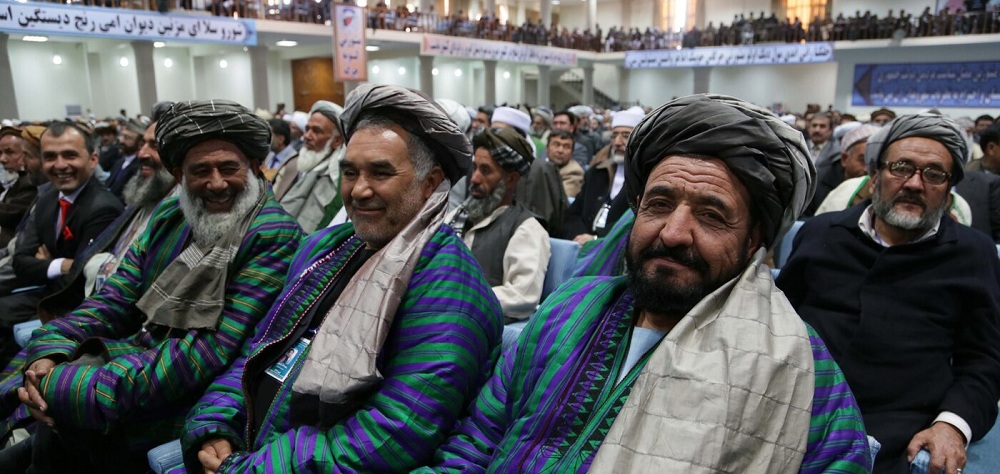Alwaght- Since assumption of power in August last year and establishment of the Islamic Emirate in Afghanistan, the Taliban have been predominantly focusing on gaining international legitimacy for the their new government. However, the power gain did not distract them from home policy and they are seeking to improve the legitimacy and acceptance rate of the Islamic Emirate internally because one of the international community's conditions for recognition and cooperation is formation of a comprehensive government covering all ethnic, religious, and political groups.
To this end, since a few months ago, Taliban raised a plan to hold an inter-ethnic conference with the presence of all distinguished political, religious, and ethnic leaders of the country.
In recent days, the group gathered 3,000 clerics and tribal leaders in a "jirga" conference. Local media reported that the conference will continue for three days, with national dialogue taking a center stage in it. This conference is aimed at showing that the majority of the Afghan society supports the rule of the Islamic Emirate and, contrary to foreign media propaganda, pledges allegiance to the Taliban leader.
Before the meeting, Seyed Ishaq Gilani, the head of the Supreme National Security Council of Afghanistan, said: "If people of influence in various aspects participate, the council will certainly find a good way for the interests of the Afghan and will be effective for recognition of the Islamic Emirate by the international community."
Taliban's Prime Minister Mullah Hassan Akhond at the meeting called for the clerics and tribal leaders to commit to supporting the Taliban rule and urged them to "consider the Islamic Emirate your home and help it settle its problems."
Afghanistan has been grappling with grave economic conditions and insecurity caused by increasing terrorist actions. These challenges are set to worsen in the shadow of tangible fall in the international aids, drought, the Western freezing of Afghanistan foreign assets, and international food crunch caused by Ukraine war, leaving the Taliban in dire straits and unable to meet its promises of bringing back stability, reconstructing the country, and improving the living conditions of the poor.
The Taliban may exploit the successful arrangement of the loya jirga conference to gain allegiance and show off their home legitimacy, but sustainable peace and bridging the ethno-sectarian gaps as results of two decades of Western war and occupation in Afghanistan are needs accessible only through national dialogue and awareness about the wicked foreign plots to sink the country in swamp of instability and ethno-sectarian dispute and consequently involve the whole region in the crisis.
During the past months, both before and after the withdrawal of the occupying forces, various meetings on Afghanistan have been held by regional states and even China and Russia, indicating the high importance of internal developments in Afghanistan, given the country's significant geopolitical position in the East to West Asia and South to Central Asia trade routes.
The recent months' developments including terrorist attacks on holy sites, especially of the Shiites, ISIS activity boom, hate-inciting interpretation of the last week Balkhab province clashes by the Western media, and tensions of the Taliban with neighboring countries over border and water issues when combined with the Western economic sanctions on Afghanistan lead to the notion that the US and its partners are leading purposeful efforts to sow instability and crisis in the country.
This issue was raised by Hassan Kazemi Qomi, Iran's special envoy to Afghanistan, when he commented on Balkhab incidents. In a Twitter post, he said: "The US priority for purposeful chaos in Afghanistan is stirring ethno-sectarian conflict to victimize the Hazaras and Tajiks for its plan and regionalize Afghanistan crisis."
Therefore, despite different receptions and inconsistent takes by the Afghans on the Taliban's holding of the loya jirga conference, dialogue and incorporation of all ethnic groups in the national decisions and political structure are the only safe ways for departure from instability.



























